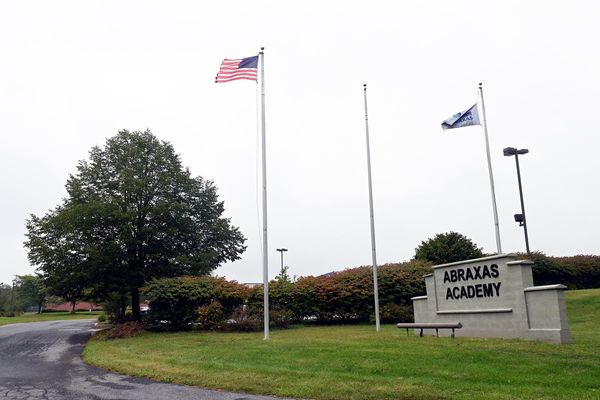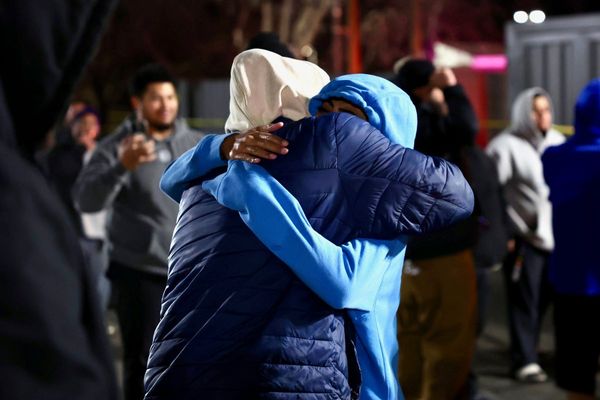
Netflix just unveiled (and then partially withdrew) details of a new password-sharing policy, which allows members of the same “household” to share an account. Besides being, in reality, more an anti-password-sharing policy, this revised version comes with two very large assumptions: that there is a commonly understood, universal meaning of household, and that software can determine who is and is not a member of your household.
This is a recurring form of techno-hubris: the idea that baseline concepts such as “family” have crisp definitions, and that any exceptions are outliers that would never swallow the rule. Such corporate delusion in the world of technology is so long established and common that there’s a whole genre devoted to cataloging the phenomenon: “Falsehoods Programmers Believe About X.”
In the early 2000s, I spent several years trying to bring some balance to just such an effort to define family. I was the representative for the Electronic Frontier Foundation, a nonprofit established to defend civil liberties online, in a forum created by the industry consortium Digital Video Broadcasting (DVB). This business association, which sets digital-TV standards used in most of the world (though not in the U.S.), was then rolling out a system designed to limit video sharing to a single household. Its term of art for this software-defined family unit was “authorized domain.”
The borders of this domain were privately negotiated by corporate executives from media companies, broadcasters, and tech and consumer-electronics companies, in closed-door sessions all around the world with no public minutes or proceedings. These guys (they were nearly all guys) were proud of how much “flexibility” they’d built into their definition of household. For example, if you owned a houseboat and take your laptop, or had a luxury car with seatback displays, or kept a summer villa with lots of TVs in another country, the authorized domain would be able to figure out how to get your videos onto all of those screens.
But what about other kinds of families, I asked—the kinds without boats or villas?
I suggested that one test case should be a family based in Manila, whose dad travels to remote provinces to do agricultural labor, whose daughter works as a nanny in California, and whose son does construction work in the United Arab Emirates. The guys roundly rejected this suggestion as an “edge case.”
Of course, this isn’t an edge case. There are orders of magnitude more people whose family looks like this than there are people who own a vacation home in another country. Owning a villa makes you an outlier; having an itinerant agricultural worker as your family’s breadwinner does not.
Unfortunately, everyone in the room who draws up the standard definition of what constitutes a household is more likely to have a villa than to depend on remittances from family members working abroad. So if your family looks like their edge case, that’s tough: “Computer says no.”
One day, we got to talking about the problem of “content laundering,” another form of sharing that the forum considered illicit. The way to prevent it, the executives argued, would be to put limits on how often someone could leave one household and join another: No one could have a legitimate reason to change households every week.
“What about a child whose divorced parents share custody of her?” I said. “She’s absolutely going to change households every week.” They thought about it for a moment, then the representative of a giant IT company (which, it so happened, had recently been convicted of criminal antitrust violations) said, “Oh, we can solve that. We’ll give her a toll-free number to call when she gets locked out of her account.”
That was the solution they went with: If you were a child coping with the dissolution of your parents’ marriage, you would have to keep calling up a media company to get your TV access unblocked. I never forgot that day. I even wrote a science-fiction story about it, “Authorised Domain,” which took the form of a court-ordered letter written by a girl who’d been automatically caught for and then charged with “piracy” as she attempted to keep up with her favorite TV shows following her parents’ divorce.
I think everyone in that DVB meeting understood the absurdity, but they had already decided that defining the “household” category would have a simple software solution. That decision made, nothing was going to stop it.
Categories such as “household” and “family” are such intuitive touchstones in our everyday life that we think we know what they mean in a commonsense way—even if, in fact, their definitions are fuzzy to the point of being fractal. Even someone’s name, which you might think would be very stable and fixed, can be fuzzy. Take, for example, my grandfather’s.
He was born Avrom Doctorovitch. At least, that’s one way to transliterate his name, which was spelled in a different alphabet, Cyrillic—though it was also transliterating his first name from another alphabet, Hebrew. When he came to Canada as a refugee from the Soviet Union, his surname was anglicized to Doctorow. We have cousins whose names are spelled Doctorov, Doctoroff, and Doktorovitch.
Naturally, his first name could have been Abraham or Abe, but his first employer, a fellow Eastern European émigré, decided that this was too ethnic and, in a well-intended effort to help him fit in, called my grandfather “Bill.” When my grandfather attained citizenship, his papers read “Abraham William Doctorow.” So he went by “Abe,” “Billy,” “Bill,” “William,” “Abraham,” and “Avrom.”
As a practical matter, it generally didn’t matter that such variations appeared on assorted forms of ID, contracts, and paperwork. For instance, his reparations check from the German government had a different variation from the name on the papers he used to open his bank account, but the bank still let him deposit it.
All of my relatives from his generation have more than one name. Another grandfather of mine was born Aleksander and was called “Sasha” by friends; he had his name changed to Seymour when he got to Canada. His ID documents were also a grab bag.
None of this mattered to him either: Airlines would sell him tickets, border guards would stamp his passport, and rental agencies would let him drive away in their cars in spite of the minor variations on his IDs. But after 9/11, all of that changed. Suddenly, it was “computer says no” unless everything matched perfectly.
A global rush for legal name changes took place in the early 2000s, not because people were actually changing their names, but because they needed to perform the bureaucratic rite of standardizing the name they’d used all along for recognition by these brittle new machines with their database schema.
The dynamic at work here conforms to the principle I call the “Shitty Technology Adoption Curve,” which describes the process by which abusive technologies work their way up the privilege gradient. Every bad technological idea is first applied to poor people, refugees, prisoners, kids, psychiatric patients, and other people who can’t push back. Their bodies are used to sand the rough edges and sharp corners off the technology, to normalize it so that it can be imposed on people with more power and influence.
The final stage in this process occurs when people are persuaded to adopt the technology as a luxury good. Twenty years ago, if you ate your dinner under an always on closed-circuit television system, it was because you were in a supermax prison. Today, it’s because you bought yourself a premium home-surveillance system from Google, Amazon, or Apple.
As with the DVB guys’ “authorized domain,” the Netflix anti-sharing tools are designed for rich people. If you travel for business and stay in the kind of hotel where the TV has its own Netflix client that you can plug your username and password into, Netflix will give you a seven-day temporary code to use. But unless you connect to your home Wi-Fi network and stream a show every 31 days, Netflix will lock you out of your devices. Once blocked, you have to contact Netflix. Cue laughter in Big Tech customer service.
Why is Netflix putting the screws to its customers? It’s part of the “enshittification” cycle (another coinage of mine), in which the platform company first allocates surpluses to its users, luring them in and using them as bait for business customers. Then, once the consumers turn up, the company reallocates surpluses to businesses, lavishing them with low commissions and lots of revenue opportunities. And after they’re locked in, the company starts to claw back the surpluses for itself.
Remember when Netflix was in the business of mailing red envelopes full of DVDs around the country? That was allocating surpluses to users. The movie companies hated this, and considered it theft—a proposition that was at least as valid as Netflix’s complaints about password sharing. But every pirate wants to be an admiral. When Netflix did it to the studios, it was progress—when you do it to Netflix, however, it’s theft. So if you define family in ways that make Netflix less money, that’s felony contempt of its business model.
Netflix isn’t the only company that has tried to embed a definition of family in service offerings—Apple and Google have also made their own ham-fisted attempts. But just because a business’s shareholders would prefer to assign sharp-edged borders to notions such as family, households, names, and addresses doesn’t mean that we can—or should.







